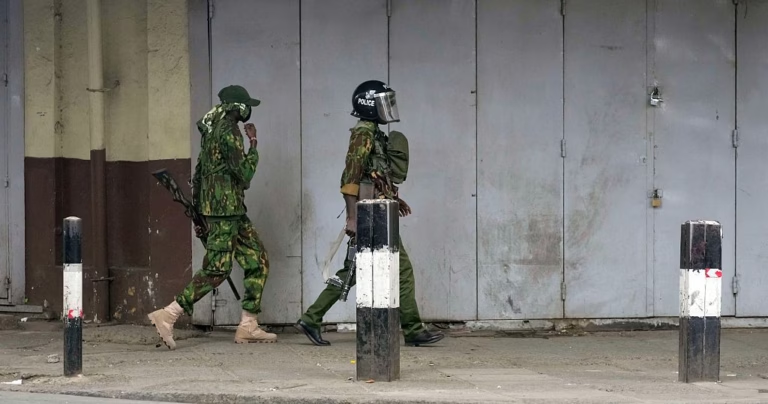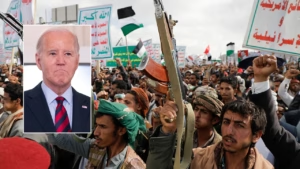
A new technology might offer hope to survivors of sexual assault in South Sudan, but it faces several obstacles.
A 28-year-old woman, after being gang-raped by armed men while gathering firewood, struggled to find help. Clinics were closed or asked her to return later, and she lacked the funds to reach a hospital.
Months later, she was in a displacement camp in South Sudan’s capital, dealing with a swollen belly and pregnancy. Despite her distress, she voiced a universal concern of many women in her situation, “I felt like I wasn’t heard… and now I’m pregnant.”
Identities of sexual assault survivors are kept confidential by the Associated Press.
Sexual violence remains a significant threat for women in South Sudan, and now an aid organization is attempting to fill the service gap with technology.
However, implementing this in a country with limited connectivity, high illiteracy rates, and concerns about information misuse is challenging.
A few months earlier, a pilot project by an Israeli organization in South Sudan introduced a WhatsApp chatbot. The bot asks survivors to share their experiences anonymously, with the information then being sent securely to the organization’s phone, rapidly connecting survivors with support.
IsraAID claims this technology improves communication, as paper records can be lost and manual documentation is error-prone. While technology can reduce errors, organizations must prioritize data privacy.
IsraAID assures that its data is encrypted, anonymized, and automatically deleted from staff phones. Within the first three months of 2024, the chatbot helped report 135 cases.
The 28-year-old survivor initially knew she had days to access medication to prevent disease and an unwanted pregnancy. An aid group noted her details on a piece of paper and advised her to return later to speak with a social worker. Upon her return, they were busy, and soon she assumed the opportunity for help was gone.
Later, IsraelAID found her during community visits. Despite initial fears about the confidentiality of her information on their phones, she felt more secure knowing these devices were not personal and could hold the organization accountable if issues arose.
Thousands of displaced people remain in Juba, the capital, despite a peace agreement in 2018. For many women, the fear of sexual assault persists when they leave their camps for essential tasks like collecting firewood.
Victims report inadequate services within the camps due to reduced international aid and limited government investment in health services. Without means to travel to the hospital, they face further barriers.
U.S. President Donald Trump’s recent order to pause USAID funding for a 90-day review period has worsened the situation, leading to the closure of some aid services, including psychological support for women.
Gender-based violence organizations in South Sudan often do not utilize technology, but some survivors suggest an ideal app would allow for remote assistance.
South Sudan has low mobile access and connectivity, making technology tool deployment problematic, especially for literacy-challenged individuals.
Survivors express a basic need to be heard, whether through a phone call or in person.
One 45-year-old father of eleven, who was sexually assaulted by his wife after he refused to have more children, also highlights the challenges. It took persistent efforts by aid workers before he was comfortable reporting his ordeal.
A 28-year-old woman, after being gang-raped by armed men while gathering firewood, struggled to find help. Clinics were closed or asked her to return later, and she lacked the funds to reach a hospital.
Months later, she was in a displacement camp in South Sudan’s capital, dealing with a swollen belly and pregnancy. Despite her distress, she voiced a universal concern of many women in her situation, “I felt like I wasn’t heard… and now I’m pregnant.”
Identities of sexual assault survivors are kept confidential by the Associated Press.
Sexual violence remains a significant threat for women in South Sudan, and now an aid organization is attempting to fill the service gap with technology.
However, implementing this in a country with limited connectivity, high illiteracy rates, and concerns about information misuse is challenging.
A few months earlier, a pilot project by an Israeli organization in South Sudan introduced a WhatsApp chatbot. The bot asks survivors to share their experiences anonymously, with the information then being sent securely to the organization’s phone, rapidly connecting survivors with support.
IsraAID claims this technology improves communication, as paper records can be lost and manual documentation is error-prone. While technology can reduce errors, organizations must prioritize data privacy.
IsraAID assures that its data is encrypted, anonymized, and automatically deleted from staff phones. Within the first three months of 2024, the chatbot helped report 135 cases.
The 28-year-old survivor initially knew she had days to access medication to prevent disease and an unwanted pregnancy. An aid group noted her details on a piece of paper and advised her to return later to speak with a social worker. Upon her return, they were busy, and soon she assumed the opportunity for help was gone.
Later, IsraelAID found her during community visits. Despite initial fears about the confidentiality of her information on their phones, she felt more secure knowing these devices were not personal and could hold the organization accountable if issues arose.
Thousands of displaced people remain in Juba, the capital, despite a peace agreement in 2018. For many women, the fear of sexual assault persists when they leave their camps for essential tasks like collecting firewood.
Victims report inadequate services within the camps due to reduced international aid and limited government investment in health services. Without means to travel to the hospital, they face further barriers.
U.S. President Donald Trump’s recent order to pause USAID funding for a 90-day review period has worsened the situation, leading to the closure of some aid services, including psychological support for women.
Gender-based violence organizations in South Sudan often do not utilize technology, but some survivors suggest an ideal app would allow for remote assistance.
South Sudan has low mobile access and connectivity, making technology tool deployment problematic, especially for literacy-challenged individuals.
Survivors express a basic need to be heard, whether through a phone call or in person.
One 45-year-old father of eleven, who was sexually assaulted by his wife after he refused to have more children, also highlights the challenges. It took persistent efforts by aid workers before he was comfortable reporting his ordeal.







